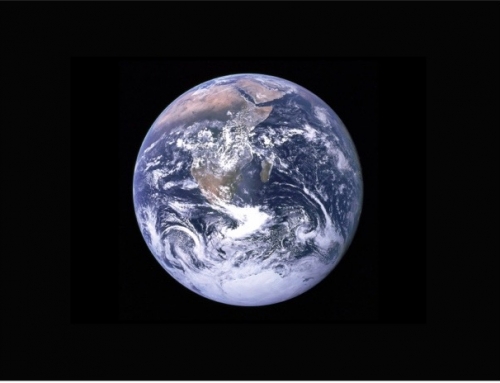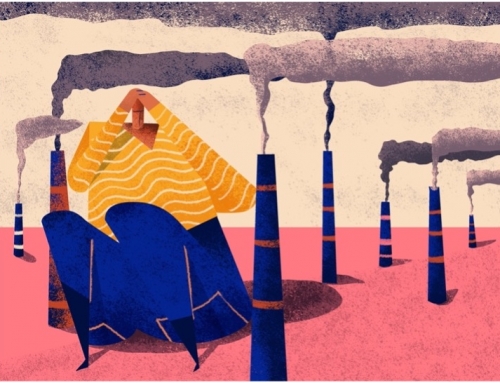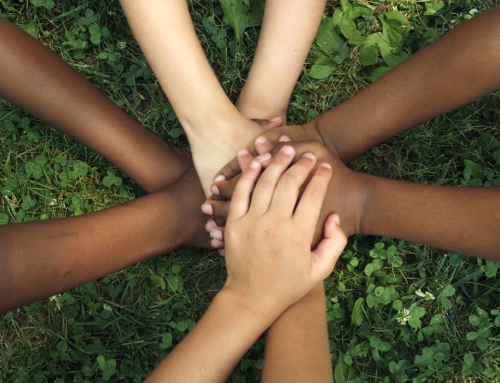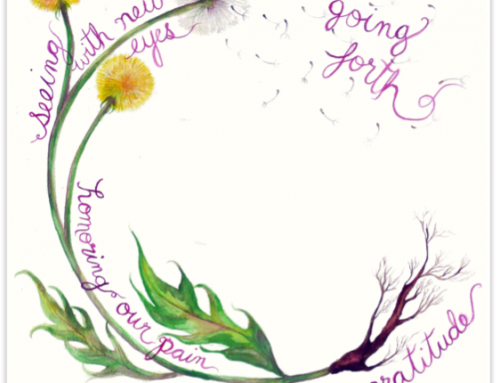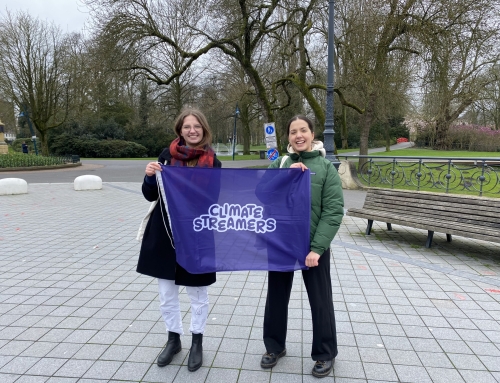The Netherlands is a wealthy country, and while we can discuss how that wealth is distributed, we cannot deny that things are going well here. On a global scale; the Netherlands is 9th on purchasing power parity (The World Bank, 2021), 8th on quality of education (United Nations Development Programme, 2020), 5th in the world happiness report (Helliwell, et al., 2021), and 2nd in personal freedom (Vásquez & Porčnik, 2019). Of course, this might feel different for individuals, but overall, the Netherlands is doing a good job in maintaining our standard of living.
While this is great, it also creates responsibility. Our nation’s wealth grew, but it had enormous costs to the natural environment as well as to the exploitation of humans from all over the world. We need to take responsibility for the actions our country took in the past. We need to start giving back and share our wealth with less fortunate societies.
The Covid-19 pandemic showed again how unequally the resources of the world are distributed. It shows again a two-track recovery. The protection against the disease mirrors the distribution of wealth & power. While this is happening for millennia, within the current interconnected world, we are more aware of this than ever. It highlights why the wealthy and powerful should act and take their responsibility. Not only because it is the right thing to do, but also out of self-interest. In a world which travels everywhere, trades everywhere and lives everywhere, the challenges, problems and responsibilities do not stop at the European Union’s border. The wealthy and powerfully need to step up to bring safety and equal opportunities everywhere. How can we do better?
What is my power, and my responsibility?
As I showed in the introduction, I think it is important to create a more equal world. However, this is a major complex task brighter minds than me have been thinking about for centuries. Even though many intelligent minds have devoted much time and energy to building a more just world, a solution has not been found yet. So, what can be my role? What can I do? And what do I want to do?
Already for a long time, I have been fascinated by voluntary work. The fact that people, seemingly unselfish, put time and effort into things they like or care about is amazing. With over seven million volunteers in the Netherlands (Muskee, 2021), you could say that society is built on the foundations that volunteers create. And while I admire the work volunteers do at the local sports club, the library or local primary school, another part of voluntary work has my interest. Namely, humanitarian aid.
Back in 2014 I joined a group of Teacher Education for Primary Schools students to do voluntary work in Bosnia-Herzegovina. Together with a group of fifty future teachers we travelled to a primary school where we shared knowledge and offered practical help in renovating a school building.
Over the years, I went back multiple times and, while I saw how the local people were very thankful for us, I wondered if what we did was the right thing to do. The fact that I did the same work for many years, meant that no significant change had been made. The question arose: are we doing the right kind of work?
How do we take responsibility?
Let me start in quoting Karjit a youth from Humla who grew up in a series of children’s homes
in Kathmandu and Pokhara, despite not being an orphan (Corbett & Fikkert, 2012).
“There were so many volunteers: short-time, long-time, middle-time, according to visa! …
Sometimes they organize program, and I don’t want to go. Children sometimes feel angry
because they want to do what they want. There is a nice movie and children they want to
watch, but volunteers organize a football program and house managers say you have to go.
And all children were angry … Why foreigners come to Nepal? Why do they go in orphan-
age? That time they come for short time, and they give love to us, but then they leave, and
when I write they don’t reply. I say to a volunteer, ‘Sister, I am very lonely’, and they say, ‘No
problem I am here’, but then they go their country and I write but they don’t reply. When I
was little everyone can love me, now I am big, and I need love”
Simply put, there are two ways of approaching a voluntary service. One for the short term and one for the long term. Short term help is needed in moments of crisis. The amazing work that the International Red Cross and Red Crescent Movement is doing is crucial in the survival of millions of people. This work is needed to combat a humanitarian crisis right away and provides the basics of survival.
On the other hand, when a crisis is over, a society needs to rebuild itself. And here a paradox in service is created. For years NGOs from the northern hemisphere build orphanages, hospitals, dug wells and took care of the sick and weak in the global south even when that was not what the local communities needed. And while the intentions can be good, the results were terrible. Over time, the ones that needed help got too dependent of outside help, which led to a collapse of the self-sufficiency of locals. Not only were they deprived from the possibility to rebuild their own society, with or without any outside support, their situation got susceptible to abuse and exploitation (Unicef, 2018). Leading to a vicious circle of poverty, dependency, abuse, and exploitation. The story of Karjit is one of many. It is not lightly to say that those who want to do good are the problem, but they are a massive part of it. We are part of it. We are responsible of the situation that Karjit is in. Our willingness to do good, can be very destructive.
Corbett and Fikkert saw this challenge as well. While the energy to help is something to admire, the global north should rethink what they mean by helping. When someone helps, you already reason from the conviction that you know it better. The rich and wealthy wanted to help the poor (Corbett & Fikkert, 2012). But what does it mean to be poor? What does poverty mean to you?
Corbett decided to ask wealthy people what poverty meant to them. Answers were almost all about a lack of material. No money, no housing, lack of food and medicine. In research of the World Bank however, poor people almost did not mention these material stuff. Their answers on what poverty meant were far more in psychological and social terms. Shame, inferiority, powerlessness, humiliation, fear, hopelessness, depression, social isolation, and voicelessness was the explanation they gave about poverty. There is a focus on the wrong kind of welldoing. This misunderstanding shows that the focus is wrong. The rich and powerful cannot help by just focussing on material needs. We need to dig deeper. Find a way to create sustainable systemic change that empowers the poor and let’s serve them to create a future to be proud of by their own.
Serving others with your ego
“Stop and think: If poverty is rooted in the brokenness of the foundational relationships, then who are the poor?”
The research of Corbett and Fikkert shows that value can be something different than materials or money. Value is also the way how someone sees you, how you interact and how you collaborate. The research done by the World Bank shows that talking with, instead of talking about people helps to create possibilities. It helps to understand each other. However, why don’t we do that more often? Why do we keep participating humanitarian aid the way we do, while we know it should be different? That is because the service becomes more complex.
Helping on material level is obvious. It is visible and easy to understand. You see direct results and, initially, people are happy with this help. In a way, it is flamboyant. It is result orientated. On the other hand, you want to have systemic change. But to create this, research is needed and there is not a clear answer what works the best in each situation. It is complex and it takes effort. You will not see direct result and there is no direct response of the ones involved. It is process oriented and thus less visible right away.
In the beginning of this post, I asked myself why I do voluntary work. Is that for the one less fortunate, or is it for me? Is it to help myself or is it to serve others? While I do think that predominantly I want to serve others, it is good for my ego as well. Serving others feels good, gives me a sense of pride towards myself, and it leads to me putting energy into the greater cause. Nothing wrong with that. However, this mindset of wanting to do good out of your ego might create a situation in which you see yourself as superior, that you know it better. On this aspect, we need to be very careful.
My responsibility
My mission is to combine these two aspects. I believe in the goodness of man. And when someone has a great contribution, solely for their ego, is that a bad thing? It should not matter too much if someone also does humanitarian aid if it makes themselves feel better. However, challenges should be targeted the way they should be handled. Make distinctions between moments of crises and moments of creation. My mission is to find a way where humanitarian aid is performed the best way possible, without the energy of wanting to do good being lost.
So, what now? I believe that listening to people is key. In the upcoming months I will talk, listen, and brainstorm with people who are involved in this sector. A lean data approach where facts and feelings matter. I am not trying to find the best answer to the challenges that are described, however with enough input we can create good practices together.
References
Corbett, S., & Fikkert, B. (2012). When Helping Hurts; How to Alleviate Poverty without Hurting the Poor… And Yourself. Chicago: Moody Publishers.
Helliwell, J. F., Layard, R., Sachs, J. D., De Neve, J.-E., Aknin, L. B., & Wang, S. (2021). World Happiness Report 2021. World Hapiness Report.
Muskee, M. (2021, March 4). Mensen maken Nederland: Vrijwilligers dragen de gemeenschap. Opgehaald van Vereniging van Nederlandse Gemeenten: https://vng.nl/artikelen/mensen-maken-nederland-vrijwilligers-dragen-de-gemeenschap
The World Bank. (2021, September). GNI per capita, PPP. Opgehaald van The World Bank Data: https://data.worldbank.org/indicator/NY.GNP.PCAP.PP.CD?year_high_desc=true
Unicef. (2018, October 8). Volunteering In Nepal?; What you should know before volunteering in an orphanage in Nepal . Opgehaald van Unicef.org: https://www.unicef.org/nepal/stories/volunteering-nepal
United Nations Development Programme. (2020, July 21). Human Development Reports. Opgehaald van Education Index: http://hdr.undp.org/en/indicators/103706
Vásquez, I., & Porčnik, T. (2019). The Human Freedom Index 2019. Canada: Cato Institute.

